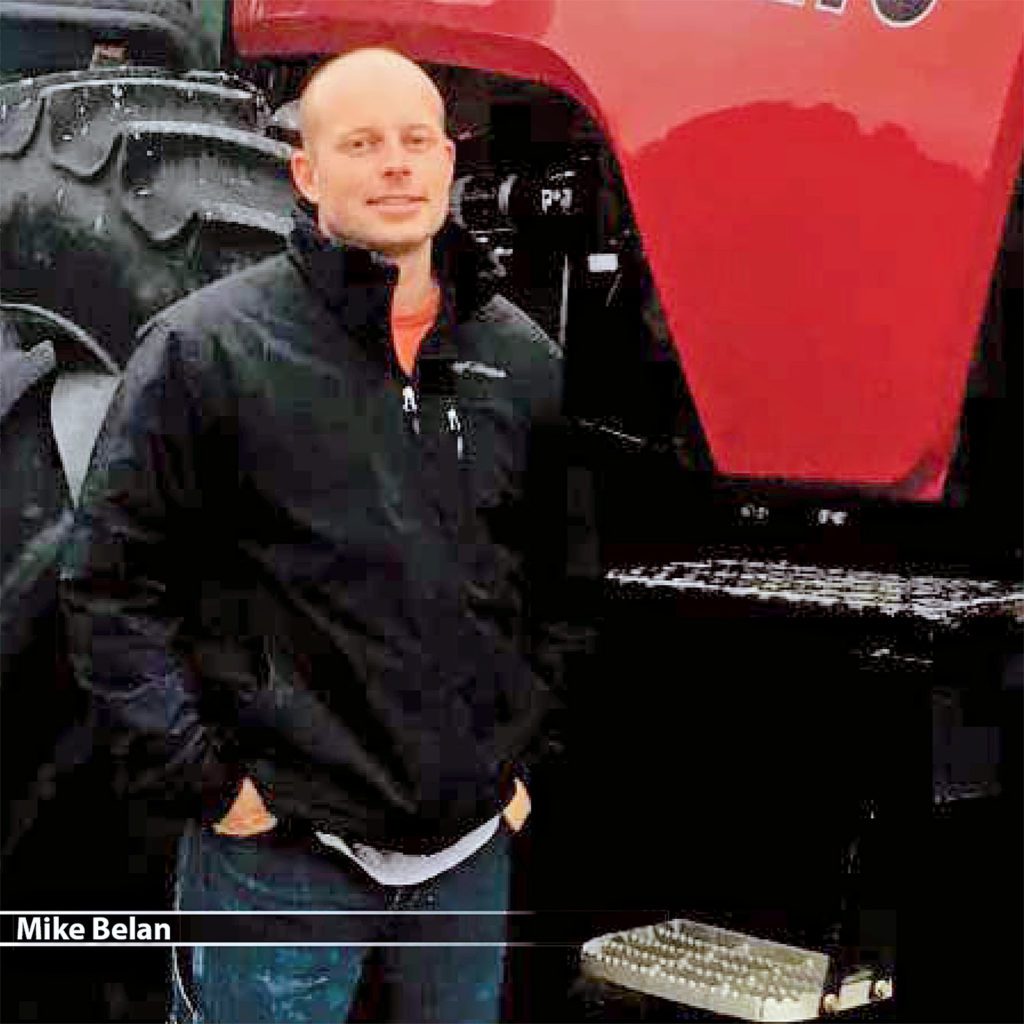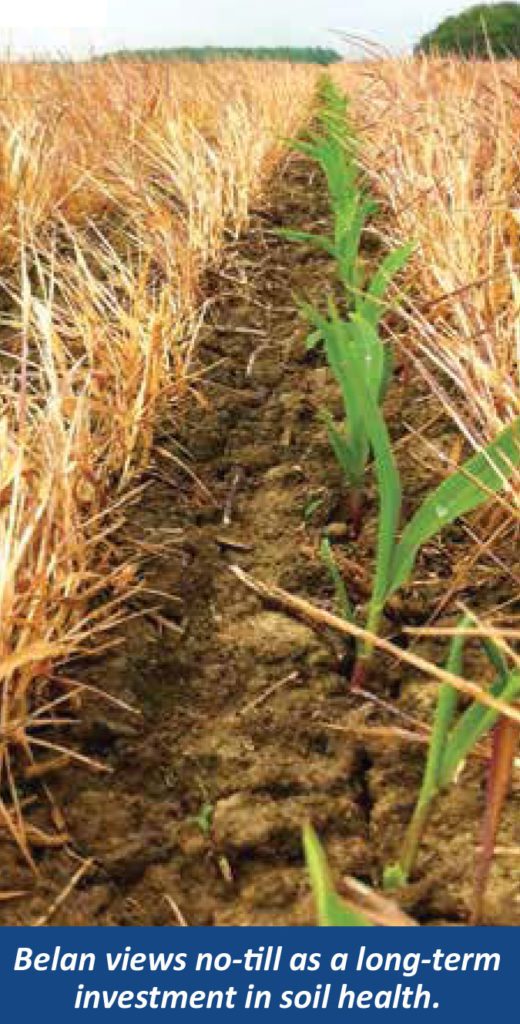
Switching the farm operation from conventional tillage to 100 per cent no-till was more of a financial decision, says Mike Belan, a cash crop farmer in Lambton County.
Driven by high interest rates at the time, “Dad and my uncle started no-till in 1991 to cut back on the cost of production,” Belan says. “It was about changing how they do things – selling equipment and cutting back on acres.”
Now, Belan is a firm believer in no-till for the health of his soil and would never consider switching back to conventional tillage.
“It has been a blessing in disguise – who knew, 25 years later, that (no-till) was the way to go on our farms,” he says.
Recent soil tests have shown Belan’s soils have greatly increased in soil organic matter (SOM) content.
This SOM has resulted in observable benefits, including better water infiltration in fields, deeper plant root systems and an increased number of worms.
In what he deems the “next phase” of his soil management, Belan has grown cover crops for the past three years to further increase his SOM.
“We are keeping our soil covered all year on all of our acres,” he says. “We are trying to keep something diverse growing (at all times).”

To Belan, improving soil health should be viewed as an investment. While there may be a yield drag at first with the switch to no-till, Belan feels he has ultimately benefitted from his dad’s and uncle’s decision – in terms of an improvement in both soil health and nutrient cycling.
No-till “is definitely a system. If you are going to go with no-till, you have to do it 100 per cent – you have to believe in the whole system, from planting to harvesting, and every- thing in-between,” Belan says.
“There is nothing concrete about (yield) results – that’s the hardest part of explaining (no-till). Our yields are not heads and shoulders above everyone else’s – it’s the fluctuation of yields that we are trying to take out of (our operation),” he says. “We want to build our soil so it can weather out storms and droughts better – it’s a long-term investment.”
~Jennifer Jackson~
Better Farming, October 2017
